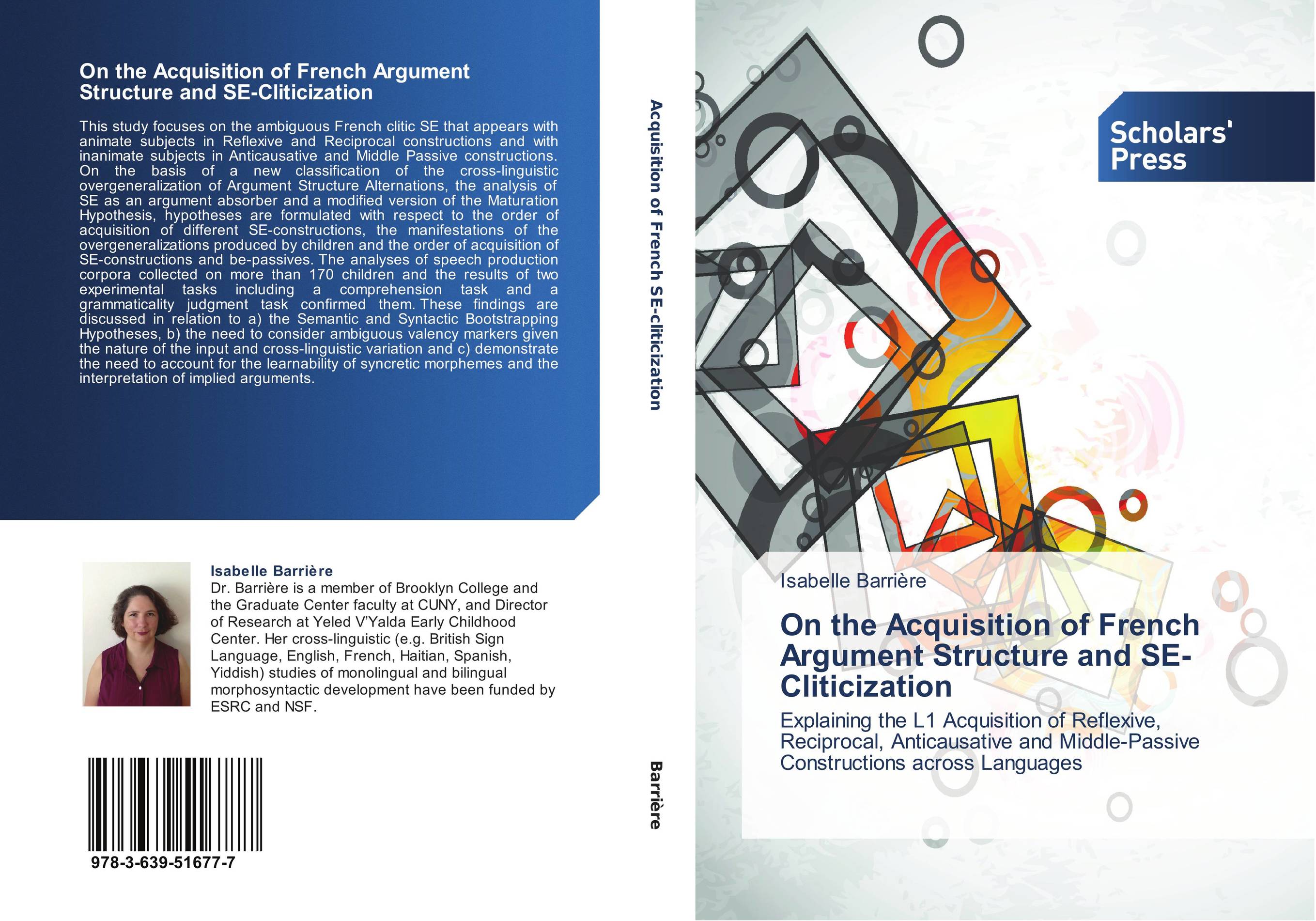| Поиск по каталогу |
|
(строгое соответствие)
|
- Профессиональная
- Научно-популярная
- Художественная
- Публицистика
- Детская
- Искусство
- Хобби, семья, дом
- Спорт
- Путеводители
- Блокноты, тетради, открытки
On the Acquisition of French Argument Structure and SE-Cliticization. Explaining the L1 Acquisition of Reflexive, Reciprocal, Anticausative and Middle-Passive Constructions across Languages

В наличии
| Местонахождение: Алматы | Состояние экземпляра: новый |

Бумажная
версия
версия
Автор: Isabelle Barri?re
ISBN: 9783639516777
Год издания: 2013
Формат книги: 60×90/16 (145×215 мм)
Количество страниц: 312
Издательство: Scholars' Press
Цена: 61199 тг
Положить в корзину
Позиции в рубрикаторе
Отрасли знаний:Код товара: 126291
| Способы доставки в город Алматы * комплектация (срок до отгрузки) не более 2 рабочих дней |
| Самовывоз из города Алматы (пункты самовывоза партнёра CDEK) |
| Курьерская доставка CDEK из города Москва |
| Доставка Почтой России из города Москва |
Аннотация: This study focuses on the ambiguous French clitic SE that appears with animate subjects in Reflexive and Reciprocal constructions and with inanimate subjects in Anticausative and Middle Passive constructions. On the basis of a new classification of the cross-linguistic overgeneralization of Argument Structure Alternations, the analysis of SE as an argument absorber and a modified version of the Maturation Hypothesis, hypotheses are formulated with respect to the order of acquisition of different SE-constructions, the manifestations of the overgeneralizations produced by children and the order of acquisition of SE-constructions and be-passives. The analyses of speech production corpora collected on more than 170 children and the results of two experimental tasks including a comprehension task and a grammaticality judgment task confirmed them. These findings are discussed in relation to a) the Semantic and Syntactic Bootstrapping Hypotheses, b) the need to consider ambiguous valency markers given the nature of the input and cross-linguistic variation and c) demonstrate the need to account for the learnability of syncretic morphemes and the interpretation of implied arguments.
Ключевые слова: English, morphology, transitivity, Patient, productivity, Hebrew, A-chain, Act-out, Agent, Animacy, Anticausative, Argument Structure Alternation, Argument Absorption, Barri?re Maturation Hypothesis, Brazilian Portuguese, Causative, Clitic, Competence Assumption, Comprehension, Ergative languages, Ethical Dative, first language acquisition, French, Grammaticality judgment, Implied Agent, inalienable possession, Inuktitut, Intransitivity, Irreversible Passive, Kiche, Lexically-realized Argument, Maturation Hypothesis, Middle-Passive, Morphological Bootstrapping, Object Clitic, Overgeneralization, passive, Possessive, Preferred Argument Hypothesis, Pronoun, Reciprocal, Reflexive, Reversible Passive, Romance languages, Sesotho, Spanish, specific language impairment, Syncretism, Strong Pronoun, thematic roles, unergative, verb, Weak Pronoun, Burzio generalization



